Making sense of Zizek’s choice for Trump
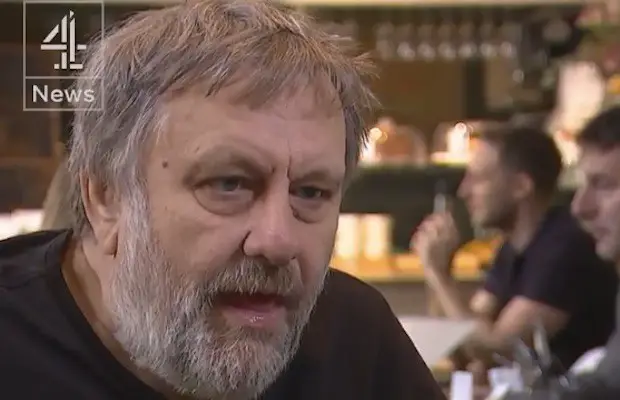

Making sense of Zizek’s choice for Trump
It was long speculated, but on 4th of November 2016 Zizek finally came out and said it: if he were an American citizen, he’d vote for Trump. Although the video provided is relatively short, the reasons are all there. Perhaps one needs to get over the shock of a self-proclaimed Marxist voting for someone like Trump – that is, someone who has typically been accused of fascism. But perhaps also there is a need for some background knowledge that is lacking. So in this post, let me elaborate on why Zizek’s hypothetical vote for Trump should not all be surprising (or shocking).
Let’s start with Zizek’s absolute disdain for Clinton. Disdain is perhaps even too mild of an expression, it is more of a repulsion and disgust. Why? As he points out in an article on August 12th 2016:
On CBS’s 60 Minutes (May 12, 1996), Albright was asked about that year’s cruise missile strikes on Iraq known as Operation Desert Strike: ‘We have heard that half a million children have died. I mean, that’s more children than died in Hiroshima. And, you know, is the price worth it?’ Albright calmly replied: ‘I think this is a very hard choice, but the price—we think the price is worth it.’
This sentiment, the normalisation of death of children in American political life that the previous Clinton administration has wholeheartedly endorsed is precisely the reason for that disgust. As Zizek continues in that same article:
Let’s ignore all the questions that this reply raises and focus on one aspect: can we imagine all the hell that would break out if the same answer would be given by somebody like Putin or the Chinese President Xi? Would they not be immediately denounced in western newspapers as cold and ruthless barbarians?
To Zizek, the liberal consensus driven ideological framework is precisely the problem with the contemporary so-called ‘left’ in America. If Clinton has no problem in justifying the death of 500.000 children (read that again: 500.000), there is not much else to feel towards that person than disgust. And let us not forget that Hillary Clinton is considered to be more right-leaning than her husband; under her administration the normalisation of such justifications would not only continue, but, in all probability, also intensify. This is, at least, what Zizek expects. Perhaps this is paranoia, but given his close friendship with Julian Assange,1 there is ample reason for him too to consider Clinton a ‘war hawk’:
Hillary’s problem is not just that she’s war hawk. She’s a war hawk with bad judgement who gets an unseemly emotional rush out of killing people. She shouldn’t be let near a gun shop, let alone an army. And she certainly should not become president of the United States (source: WikiLeaks).
She is a war hawk that will only further endanger the lives of thousands of people across the globe. More than that, she has absolute disregard for human life. I want to repeat this once again: “I think this is a very hard choice, but the price—we think the price [death of 500.000 children] is worth it.” The number itself is, of course, irrelevant. It could be half of that, a tenth, just a few hundred, or a dozen – the point is simply that no matter what the number, she has no regard for human life as such.
Albright: this is a very hard choice, but the price (death of 500.000 children) is worth it. Share on XThe problem is not only a moral one. There is a substantial political reason to opt for a right-wing Trump, given the choice of course, than to a somewhat left Clinton. The public opinion at the time of writing is positive regarding Clinton. Positive not in the sense that she enjoys a positive rating, as does Obama, but that she is regarded as an establishment candidate. Her victory would be expected, nothing would truly change. Zizek’s concern here is deeply political precisely because her victory would not lead to any serious protests towards the government. Of course, your usual Fox News mockery and condemnation would continue. But would there by a challenge, a demand for change of course by either right or left in a manner that involves the public?
It is in this instance that we can discern this bizarre option for Trump in Zizek. His position is to vote for someone who is not part of ‘business as usual’, precisely because it could lead to protests not just towards the current established order, but towards the very core of politics in America. So let’s be clear about this: Zizek is not opting for a demagogue to change political life from the top; rather, he opts for the possibility for the public to rise and establish the frontiers against the demagogue. It is glimmer of “desperate hope” that a form of civil disobedience that we witnessed in the 1960s would re-enter the political climate – and with it, a radical break from the continuity of contemporary political order.2
The aim of this public rise is to revitalise what is essentially democratic – namely, the diversity of the public itself. An obvious question at this point is how Trump would be able to achieve that end better than Clinton. The answer lies in what Clinton embodies. Her moral outlook is certainly problematic; but even if we disregard morality completely, there would still be a significant problem. So what is it that Clinton embodies? Well…. everything. She embodies all kinds of positions, from Wall Street to Occupy, bankers, big business and trade unions, Sanders supporters and his opposers, the pragmatists, realists and idealists, feminists, LGBT+ and chauvinists – she embodies every thinkable position all the way down to those who are willing to sacrifice 500.000 children. Remember that for Madeleine Albright “There’s a special place in hell for women who don’t help each other!” That was her gesture of endorsement that went unquestioned, while all attention went David Duke endorsement of Trump.
A political space can only meaningfully be called political when it allows for frontiers of resistance to be formed. Share on XBut back to Zizek and politics of the matter, as I digress. The problem here is, at its very core, a democratic one: embodying the whole of the population, according to Zizek, leads to a lack of any meaningful political space. A political space can only meaningfully be called political when it allows for frontiers of resistance to be formed. Or to put in Foucault’s terminology: ‘there are no power relations without resistance’ (a close paraphrase). An absolute embodiment forecloses possibilities of resistance, and by doing so, it forecloses power relations between the rulers and the ruled – what remains is a total embodiment of the people.3 The moment it reaches a total embodiment, we are no longer in a democratic society but in a totalitarian one.4
A vote for Trump is thus not meant to be a downward spiral that accelerates the demise of the political system as a whole. Rather, it is meant, paradoxically, to keep the possibilities of contestation alive. A vote for Trump, according to Zizek, is thus less dangerous precisely because Trump lacks that total embodiment.
A brief note on the purpose of this piece: I am only elucidating Zizek’s position, and do neither endorse nor oppose either of the candidates here. I am of the opinion that his analysis is correct (otherwise I would not bother elucidating it); but I am also of the opinion that he overestimates post-elections political engagement. I am not a US citizen, nor would I vote for Trump (or Clinton for that matter) were I asked to cast a vote.
Sign up for Paradox of the Day mailing list and please visit our Patreon support page.
- The Observer has written and article on Assange and Clinton, cf. here.
- Note that Zizek is well aware of this hope being dangerous. As he makes clear, things could also not change at all, and America would have more right-wing supreme court judges. (As a sidenote: aren’t we a little too optimistic about the death of current judges – who have not died yet?)
- Of course for Foucault power relations never fully disappear.
- Cf. Lefort, C. (1988). Democracy and Political Theory. Minneapolis: University of Minnesota Press.




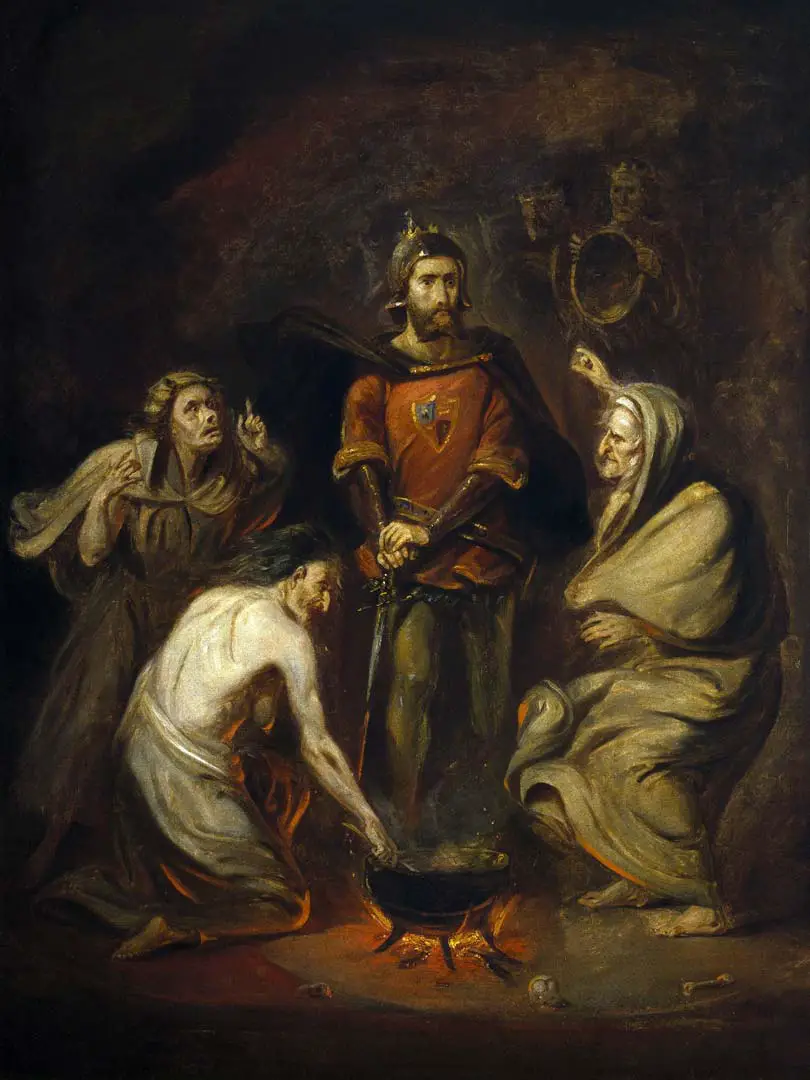
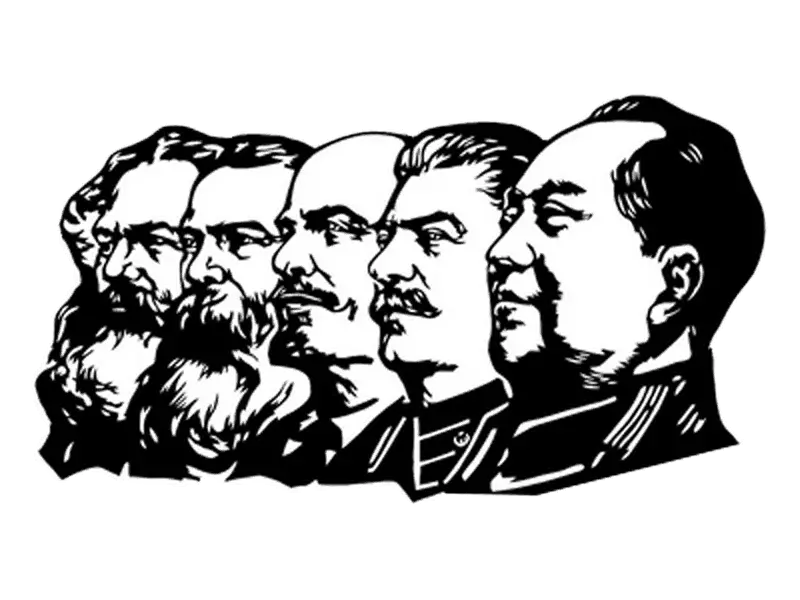
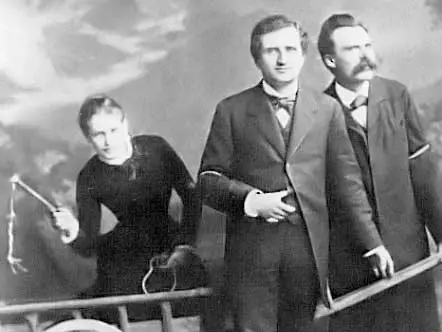
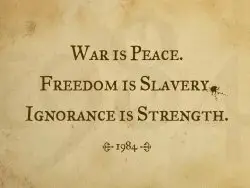

Thanks for exposing this in so clear terms.
Two problems with this argument:
“His position is to vote for someone who is not part of ‘business as usual’, precisely because it could lead to protests not just towards the current established order, but towards the very core of politics in America. So let’s be clear about this: Zizek is not opting for a demagogue to change political life from the top; rather, he opts for the possibility for the public to rise and establish the frontiers against the demagogue. It is glimmer of “desperate hope” that a form of civil disobedience that we witnessed in the 1960s would re-enter the political climate – and with it, a radical break from the continuity of contemporary political order.”
First of all, this idea that Trump is a radical outsider is false. Yes, his politics don’t fit neatly into the stereotypical boxes of the Republican or Democratic party, but he is part of the elite 1% who will maintain the corporate capitalist way of business.
The second issue is once Trump becomes president, his politics will immediately become normalised, in which you wonder where such protests will targeted, at Trump himself? He just won the election. At the nexus of business and government which seem to be the main issue? Perhaps, but that would only work in co-operation with Trump.
The problem with this debate is we’re still treating Trump like an insurgent candidate looking to change things, once he gets in, he will establish an order, a hierarchy, an establishment. Old norms disappear, new ones emerge, and it’ll be very hard for anyone to push for change without political support.
“The problem here is, at its very core, a democratic one: embodying the whole of the population, according to Zizek, leads to a lack of any meaningful political space. A political space can only meaningfully be called political when it allows for frontiers of resistance to be formed. Or to put in Foucault’s terminology: ‘there are no power relations without resistance’ (a close paraphrase). An absolute embodiment forecloses possibilities of resistance, and by doing so, it forecloses power relations between the rulers and the ruled – what remains is a total embodiment of the people.3 The moment it reaches a total embodiment, we are no longer in a democratic society but in a totalitarian one”
This implies that a president that tries to represent everyone to some level is in some ways totalitarian, it removes the space for criticism. Or it could mean that the president is trying their best to find a middle ground and not pit one group against another. Those who criticise president Trump will simply be marginalised as people point to his democratic election. The critics, like in the Bush administration will be treated as anti-American and told to shut up.
Trump has clearly staked who will be the winners and losers from his presidency, I very much doubt that if you agree with a Trump presidency, that protest will be open, allowed, accepted. Again, there is this assumption that Trump is the insurgent candidate, there will be chaos, or, at the least a degree of contestation. To a degree there will be, but given politics has now been reduced to a scoreboard, how do the losers win any argument?
I can’t see how a leader who tries to represent everyone to a little degree is necessarily worse than someone who tries to represent a corner of the electorate and then ignore the rest.
But I don’t think that Zizek disagrees with the gist of your comment. He states in no uncertain terms that a Trump presidency can be disastrous; but also that in a Trump presidency there is space for meaningful resistance (he is desperately hopeful to that end). The problem for Zizek is that there is no room for any kind of hope under a Clinton presidency. This is the main political message that he is conveying – a consensus that Clinton embodies effectively nullifies political action. Note how Sanders backing out of his support for Clinton has not led to massive drop of Clinton leading the polls. Why? I think that Zizek is absolutely correct in his analysis of the situation – that’s why I decided to write about it. Whether he is right in placing his hopes on Trump, I am not so certain. But I do not like going into speculation. I just thought it useful if people understood why Zizek (a lefty) would vote for Trump over Clinton.
Oh I don’t have a problem with the analysis, it’s a good piece. I just find Zizek’s argument weak.
“in a Trump presidency there is space for meaningful resistance (he is desperately hopeful to that end). The problem for Zizek is that there is no room for any kind of hope under a Clinton presidency.”
I disagree, in the sense that I think the room for criticism in either presidency will be around equal. As politics has devolved into a sporting contest, the “losers” of elections are treated as heretics who have been proven wrong by the electorate.
The argument that by building a coalition, you limit the ability of protest ignores the fact that often when parties try and appeal to a specific part of the electorate, and win, they often treat their political demographic as the legitimate demographic, “real Americans” whereas others are marginalised. At least Clinton’s inconsistency and ideological sponginess means she can compromise and try and fit more people in her tent.
“This is the main political message that he is conveying – a consensus that Clinton embodies effectively nullifies political action. Note how Sanders backing out of his support for Clinton has not led to massive drop of Clinton leading the polls.”
I think that’s mainly because his support or lack of it has been washed out by reporting of other scandals regarding Trump or Clinton.
I will also say that if you are a person of colour, or gay, or a woman or any other group that has been marginalised by the Republicans, there is an earnestness to your support for Clinton. Clinton’s coalition may genuinely support her, which explains why her hold over Trump sticks.
Hey kid, you must be feeling a bit stupid now.
For explaining another man’s thought? Not really, no.
“The problem here is, at its very core, a democratic one: embodying the whole of the population, according to Zizek, leads to a lack of any meaningful political space. A political space can only meaningfully be called political when it allows for frontiers of resistance to be formed. Or to put in Foucault’s terminology: ‘there are no power relations without resistance’ (a close paraphrase). An absolute embodiment forecloses possibilities of resistance, and by doing so, it forecloses power relations between the rulers and the ruled.” This is actually not Zizek’s position at all and is instead a kind of postmodernist leftist position often falsely projected onto him.
By contrast, Zizek enthusiastically endorses that “totalitarian excess” that pertains to sovereign power – such totalitarian excesses will be necessary for the dictatorship of the proletariat to form itself. But of course we can only understand this in a proper Hegelian way. Let’s start with Hegel himself following the Philosophy of Right which I think sets the perameters for Zizek’s thinking:
“Any state, even if we pronounce it bad in the light of our principles, and even if we discover this or that defect in it, it still invariably has the essential moments of its existence within itself. But since it is easier to discover deficiencies that to comprehend the affirmative, one may easily fall into the trap of overlooking this inner composition in favor of individual or particular aspects. The state is not a work of art. It exists in the world and hence in the sphere of arbitrariness, contingency and error and bad behavior may disfigure it in many respects. But the ugliest man, the criminal, the invalid or the cripple is still a living human being; the affirmative aspect -life – survives in spite of deficiencies, and it is with this affirmative aspect that we are here concerned” -Hegel, Philosophy of right
And here are some quotes from Zizek on State power (contra today’s neoliberal consensus):
“It is all too easy to reproduce here the old opposition between presence and representation. Presence are authentic social movements and then representation is the alienated ossified party mechanisms, state apparatuses and so on. So the idea is that the left in power should at all cost should keep alive its popular roots. I think that this mantra, when a leftist in power should keep their leaning with popular social movements and so on covers up the true problem. How to transform state mechanisms how to make them function in a different way instead of just supplementing them with popular pressure from below. In short it seems clear that apart from two great models social democratic acceptance of parliamentary democracy and the Stalinist state, the Left has no other practical mode to offer. All the talk of active popular participation, self-organization of the people or multitude in social movements I think ultimately serves to obfuscate this lack. Is then today’s radical left “condemned to fight tooth and nail for social democracy to prove it cannot work?”
“The proletariat is the only revolutionary class in history that abolishes itself in the act of abolishing its opposite. NOT a state form in which the proletariat is the ruling class. We effectively have the “dictatorship of the proletariat” only when the state itself is radically transformed, relying on new forms of the people’s participation.”
“there IS, a moment of truth in totalitarianism…Hegel already pointed out how political representation does not mean that people already know in advance what they want and then charge their representatives with advocating their interests…it is their representative who formulates their interests and goals for them, making them “for itself.”
“A leader is necessary to trigger the enthusiasm for a cause, to bring about the radical change in the subjective position of his followers, to ‘transubstantiate their identity.”
“In it [the dictatorship of the proletariat] the totalitarian excess of power is on the side of the “part of no part” not on the side of the hierarchical social order…it is not only that their representatives [appointed popular leader] temporarily occupy the empty place of power, but much more radically they “twist” the very space of state representation in their direction. Once could argue that Chavez and Morales are coming close to what could be today’s form of the “dictatorship of the proletariat.”
“When Rosa Luxembourg wrote that “dictatorship consists in the way in which democracy is used and not in its abolition,” her point was not that democracy is an empty frame that can be used by different political agents, but that there is a “class bias” inscribed into this very empty (procedural) frame. This is why when radical leftists came to power through elections, their signe de reconnaissance is that they move to “change the rules,” to transform not only electoral and other state mechanisms but also the entire logic of the political space to guarantee the hegemony of their base, they are guided by the right intuition about the “class bias” of the democratic form.” Zizek. All quotes taken from “Democracy In What State”
To sum, Zizek’s point is that Capitalism is already a grassroots and thus a democratic phenomenon, its problem goes beyond democracy and necessitates the dictatorship of the proletariat. As Adorno put it in Negative Dialectics the status of bourgeois ideals are both “ideology” and “promise.” One must find the “promise” the positive particulars, through proper dialectical mediation. Hegel, Adorno, and Zizek are against appeals to immediacy because reality is not known directly as it “is,” but rather mediated through ideological appearances, cuts, distortions, “necessary forms of appearance” that are also forms of misrecognition and necessarily so. As Hegel put it, “the essence must appear,” meaning, “essence” must assume a form of “appearance:” appearances are essential. Basically, in Trump, an “essence” (a la class conflict) appears even though it takes the shape of mutiliation ala nationalism racist mysogyny etc.
Modern Marxism, to remain critical, is tasked with pursuing the constitutive conditions of possibility for critical social consciousness hidden in “appearences.” Both Trump and Sanders brought class antagonism back on to the table. One must recognize that as a necessary pre-requisite for the proletariat to self-recognize critical consciousness which antedates social transformative practice.
Zizek does not place his faith in the emergence of forces of revolt or resistance like Hardt and Negri because such anarchic movements lack any real attempt to analyze the limits of the forces that would comprise this ‘revolt’. He attacks many strands of new materialism which romanticize the ‘pure’ event of revolt -without actually getting into the thick of actual politics -where your principles are constantly being tested, where a feeling of oppression and an acting out will not be enough.
Finally, for Zizek, revolution, or dictatorship of the proletariat, does not produce an emancipated society ready-made, but only political forms through which social transformation, otherwise blocked by capitalism, might be pursued and developed further i.e which is why the “the day after” it is necessary to establish hegemony so that the space can remain open on the basis of theoretical and practical consciousness of the historical potential for the transformation of these very socio economic relations.
Thank you for a thoughtful comment, and further explanation of Zizek’s thought process. I can see why Foucault may be problematic for Zizek’s position, but does this also take away from serious problem that Zizek encounters with Clinton (were she to win) – namely, that she embodies a totality (a democratic identity)?
Part of why I responded is because I’m trying to figure this all out myself. I’ve read a lot of Zizek and so I returned to some of this writings to find the key.
I think to understand the difference he sees in Clinton one has to comprehend the dialectical way in which Zizek regards the old dichotomy of progress and regress -in a fairly traditional Marxist way.
Zizek breaks the closure of the linear determinist chain and asserts the full ontological openness of reality/history. That is, history does not proceed according to a straight line but proceeds according to a series of cuts, distortions, traumas and repetitions. In history – progress can only be read along the lines of regress and this manifests in a series of repetitions -with each repetition proceeding according to leaps, catastrophes, crises, breaks in continuity -but where each turn of cork screw something new gets added, something is sublated (in Hegelese) expanding the theme beyond what it was.
For a traditional Marist the crisis of capitalism grows automatically, but the crisis must be made/forced to advance in order for the conditions to be ripe for revolution -for the dictatorship of the proletariat to make ITS advance.
There is a structural distinction the importance of which can be easily overlooked. The driving motif of the Marxian way of thinking about history is that it is not only an open and active process forged out of struggle and conflict, but also that it must be interpreted from the standpoint of the coming revolution: that the revolution can break out at any moment and that therefore historical-political events should be interpreted retrospectively in terms of the requirements of the impending revolutionary situation.
With Trump, I think that Zizek sees a next step opened up, an advance in the worker’s self-realization and potential self-overcoming -even if it is tainted with a lot of regress. Zizek wants to preserve the possibility of politics within the working class, with Marxism being not extrinsic but intrinsic to that process -its role being to clarify to an already existing worker’s movement what it is actually fighting for. With Hillary, that isn’t even a possibility. Hillary, and the democratic machinery behind her stand for the strangling of work class politics and for Zizek, her consensus building neoliberal coalition is much more powerful/counter-revolutionary than Trump.
I suppose the final caveat to Zizek’s style is that he procedurally stands at a remove from the immediate reality of the situation. This might have an obvious distaste for those most affected by a Trump election -those most affected by the racist, bigoted incitations. But for Zizek, appeals to immediacy come dangerously close to neoliberal apologetics and ideology. Consider this passage in the preface to his book “Violence”
“Does this recourse [to critical distance] imply that we are in danger of regressing to a contemplative attitude that somehow betrays the urgency to “do something” about the depicted horrors?
Let’s think about the fake sense of urgency that pervades the left-liberal humanitarian discourse on violence: in it, abstraction and graphic (pseudo) concreteness co-exist in the staging of the scene of violence…Underlying all of this is a hypocritical sentiment of moral outrage…
Through this fake sense of urgency, the post-industrial rich, living in their secluded virtual world, not only do not deny or ignore the harsh reality outside their area -they actively refer to it all the time. As Bill Gates recently put it ‘what do computers matter when millions are still unnecessarily dying of dysentary?”